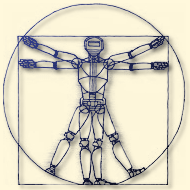Miguel Nicolelis
 Duke University
Duke University
"Computing with Neural Ensembles"
Abstract: Twenty years of chronic multi-electrode recordings in behaving animals have raised support for the hypothesis that widely distributed neural ensembles define the true functional unit of the mammalian central nervous system. This talk will review the evidence suggesting that a series of common physiological principles dictate the function of neural ensembles in both rodents and primates. It will also show that, by exploiting such physiological principles, a new series of neuroprosthetic devices, aimed at restoring mobility in severely paralyzed patients, are likely to emerge in the next decade.
Biography: Dr. Miguel Nicolelis is the Anne W. Deane Professor of Neuroscience and Professor of Neurobiology, Biomedical Engineering and Psychology at Duke University. He is also Co-Director of Duke Center for Neuroengineering; Professor of Neuroscience at the Swiss Federal Institute of Technology (EPFL) and Co-Founder and Scientific Director of the Edmond and Lily Safra International Institute for Neuroscience of Natal. Dr. Nicolelis is a native of Sao Paulo, Brazil where he received his M.D. and Ph.D. in Neurophysiology from the University of Sao Paulo.
Although Dr. Nicolelis is best known for his study of Brain Machine Interfaces (BMI) for neuroprosthetics in human patients and non-human primates, he is also developing an integrative approach to studying neurological and psychiatric disorders by recording neuronal ensemble activity across different brain areas in genetically modified mice. Dr. Nicolelis believes that this approach will allow the integration of molecular, cellular, systems, and behavioral data in the same animal, producing a more complete understanding of the nature of the alterations associated with these disorders.

